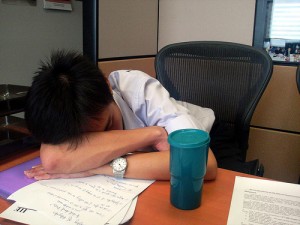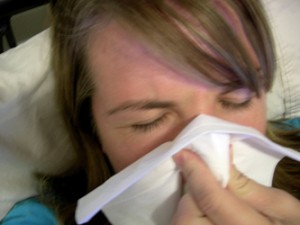Our internal body clock may play a role in determining whether we get sick or not, according to a recent study from Yale University.
Any disruption to our body’s 24-hour clock, such as not having enough sleep, can cause it to run down, leaving us susceptible to infection and illness.
Our internal circadian clock is a well-regulated biological process which helps keep our bodies healthy and working by regulating tasks such as sleeping, waking, hormone release, body temperature and other important bodily functions throughout the course of a 24-hour cycle.
The Yale researchers, experimenting with mice, found that the circadian clock, working at the genetic level, controls an important immune system gene that goes to work when harmful bacteria and viruses are around.
The scientists discovered that vaccinating their test mice at times when levels of a genetic protein, called the toll-like receptor 9 (TLR-9), were highest provided the greatest amount of immune system response, making the vaccination more effective and allowing the mice to better resist infection.
Adam Silver, one of the study’s authors, describes the toll-like receptor as a pathogen recognition receptor (PRR) whose job is to recognize specific microbial components on either bacteria or viruses. Once these bacterial or viral components are caught by the TLR, it triggers a massive response, which leads the body to kick into an essentially antimicrobial state by producing inflammation to help remove the infection.
Since our circadian clock causes the levels of this protein to rise and fall throughout the 24-hour cycle, Silver says it’s possible there are certain times of the day when we would be more susceptible to infection.
The research team says its findings suggest, for example, that jet lag may help make us sick when we’re traveling and allow us to know the best times of day to get vaccinated.
Adam Silver talks more about his team’s research on this week’s radio edition of Science World. Tune in (see right column for scheduled times) or check out the interview below.
[audio://blogs.voanews.com/science-world/files/2012/04/One-On-One-Adam-Silver-Circadian-Clock-Influence-on-Immune-system.mp3|titles=One On One – Adam Silver – Circadian Clock Influence on Immune system]Other stories we cover on the “Science World” radio program this week include:
- Retired shuttle Discovery welcomed to Smithsonian
- Why small animals survived extinction that killed the dinosaurs
- Researchers work to make contact sports safer
- New 3D film explores endangered coral reefs
- New York embraces solar energy























Comments are closed.